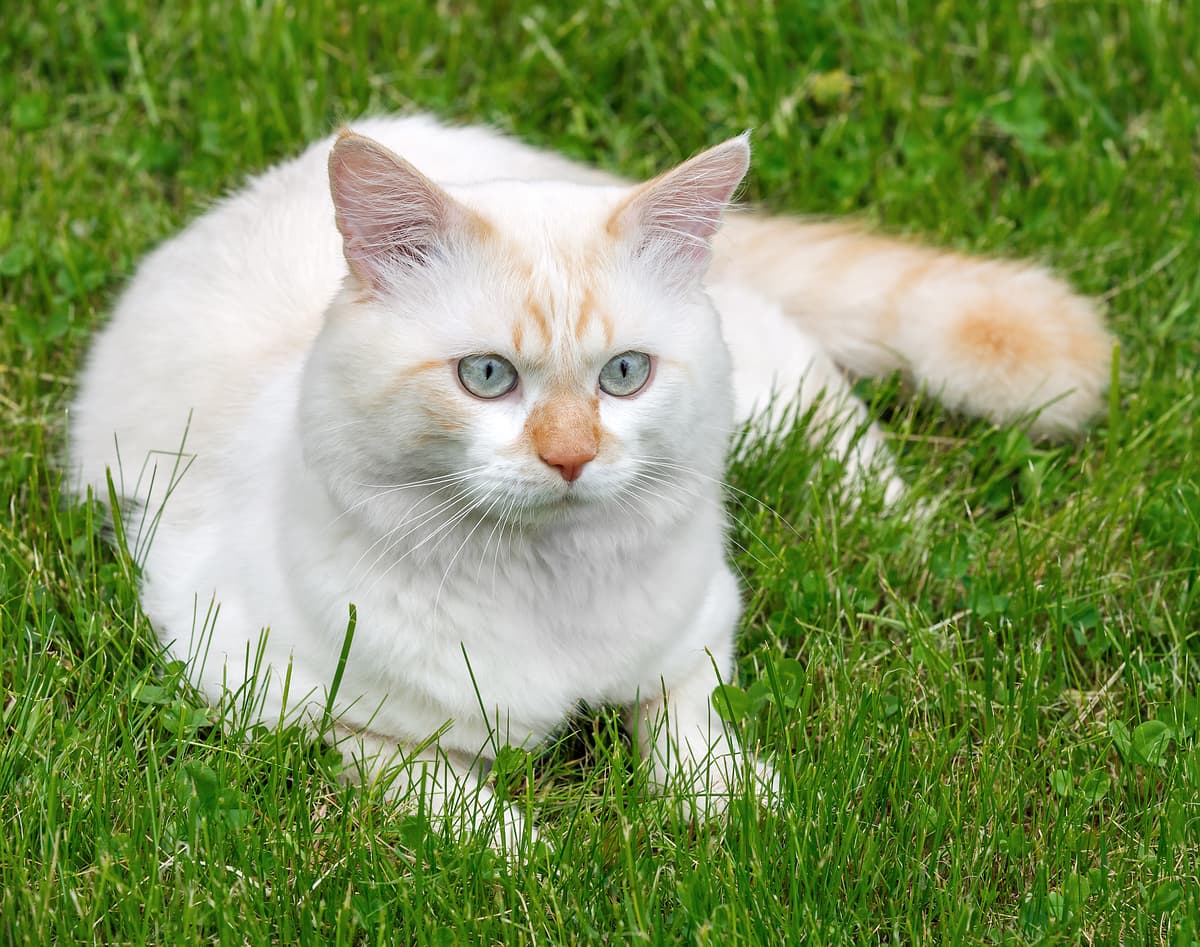Turkish Van vs Siamese
Discover the differences between Turkish Van and Siamese to make the best choice for your situation.
Try different breeds

Turkish Van
Playful, curious, and known for a love of water, this breed forms strong bonds with families. Distinctive semi-longhaired coats and energetic personalities make them lively companions.

Siamese
Striking blue eyes and a sleek, short coat set this affectionate breed apart. Social, vocal, and playful, Siamese cats thrive on companionship and interaction.
Quick comparison
Large
5–9 kg
Semi-longhaired, water-resistant
12–17 years
4–7 kg
High energy
Medium
3.5–5.5 kg
Shorthaired, fine-textured
12–16 years
2.5–4.5 kg
High energy
Personality & behavior
Compare the personality traits and behavioral characteristics of both breeds.
Turkish Van
Affectionate but may prefer select family members
Learns quickly and solves simple problems
Highly active and energetic throughout the day
Loves interactive games and chasing toys
Adjusts well to new environments and routines
Siamese
Enjoys people and bonds closely with owners
Learns quickly and solves puzzles with ease
Highly active and thrives on daily activity
Loves games and interactive play sessions
Adjusts well to new environments and changes
Care needs
Exercise, grooming, and daily care requirements
Turkish Van
Hypertrophic cardiomyopathy, deafness
Siamese
Progressive retinal atrophy, respiratory issues
Suitability
How well each breed fits different living situations and families
Turkish Van
Challenging for beginners
Turkish Vans are active and independent, which may be overwhelming for new owners
Needs more space
Their high energy and playfulness can be difficult in smaller apartments
Highly suitable
They enjoy interactive play and thrive in busy, active environments
Good with supervision
They can be gentle but may play too roughly for very young children
Selective tolerance
Turkish Vans may get along with other pets if introduced carefully
Not recommended
They dislike being left alone for long periods and may become destructive
Siamese
Good option
Affectionate and social, Siamese cats are generally easy for beginners to understand
Excellent fit
Their playful nature suits smaller spaces as long as they receive enough attention
Highly suitable
They enjoy interactive play and thrive in active, engaging environments
Usually good
Siamese cats are social but may be sensitive to rough handling by very young children
Works well
They often get along with other pets if introduced properly and given attention
Not recommended
Siamese cats become lonely and stressed if left alone for extended periods
Breed strengths
What each breed excels at and their best qualities
Turkish Van
- Strong swimmer with affinity for water
- Playful and energetic daily companion
- Highly intelligent and trainable cat breed
- Generally robust health and longevity
- Loyal and forms strong owner bonds
Siamese
- Affectionate and bonds closely with owners
- Highly intelligent and quick to learn
- Social and enjoys interactive play
- Communicates needs with distinct vocalizations
- Sleek, low-shedding coat requires minimal grooming
Challenges & considerations
Potential challenges and considerations for each breed
Turkish Van
- Needs frequent interactive physical activity
- Can be territorial with other pets
- May become bored without mental stimulation
- Prone to shedding and seasonal coat changes
- Can be vocal and demanding for attention
Siamese
- Prone to separation anxiety if left alone
- Can be overly vocal and demanding
- Sensitive to changes in environment or routine
- Needs frequent mental and physical stimulation
- Susceptible to dental and respiratory health issues
Ready to choose your perfect breed?
Learn more about each breed or compare other breeds to find the perfect match for your lifestyle.
Discover more helpful tools
Make use of our other free tools to get the most out of your pet experience
